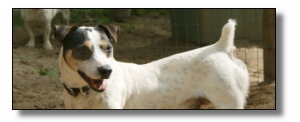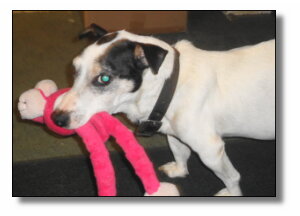
 |
Favorite Links | Secrets of Life | Poisonous Plants | The Best Goodbye  All Dogs go to Heaven.....here's proof that your best friend will be waiting for you whenever you get there.    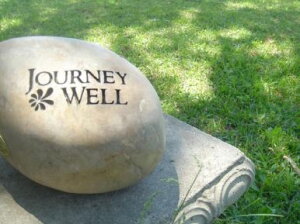 Friends enter and leave our lives, but the impressions they make on our hearts stay with us forever. Here we pay tribute to our friends and four-legged family members who have passed through our lives. "Your life was a blessing to us, Your memory a gift of joy...You are loved beyond words and missed beyond measure." Our sympathies are with you at this time of loss, we understand only too well, the pain of losing a best friend. They will be waiting for us to join them. Till then we remember the wonderful and funny things they did to show us they loved us. And they knew we loved them. Only a dog person can truly understand how great the grief. Recognize the depth of your grief as a reflection of the strength of your love. 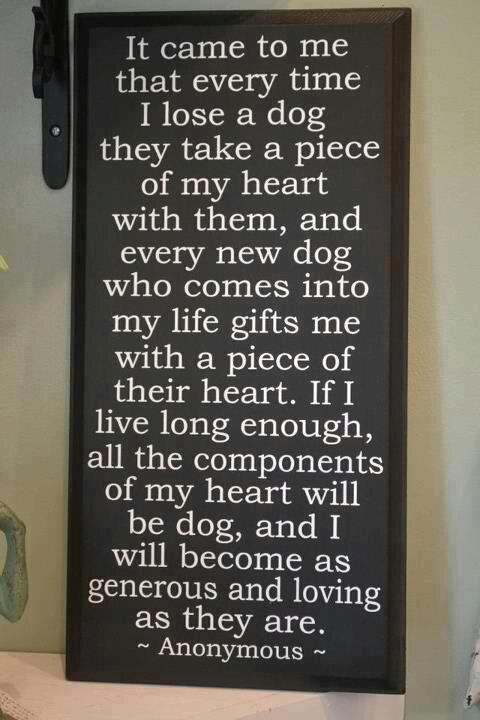
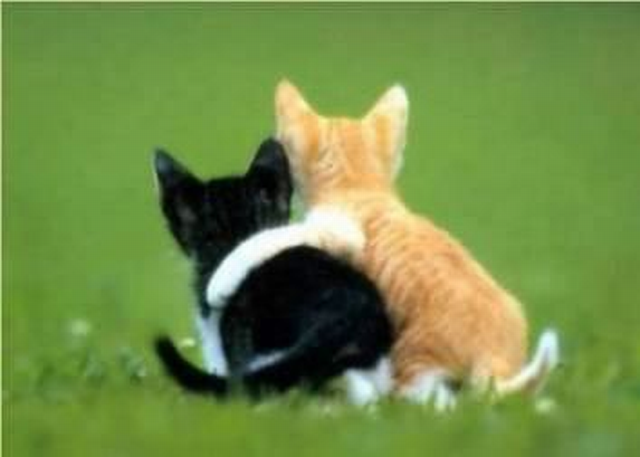
Goodbye to a Dear Friend It hurts to lose a beloved pet, especially when you have to make the choice to let go. But the last act of friendship was the most caring thing you could have done for your companion, and it says a lot about the special bond that you shared with your pet, a bond that will leave behind many wonderful memories.
 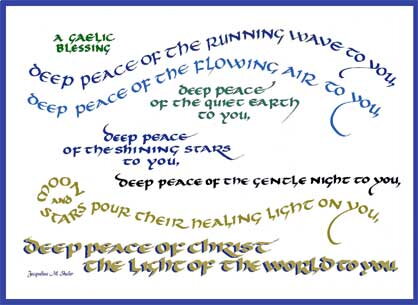 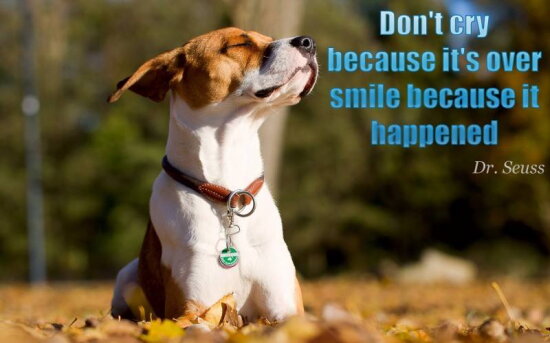
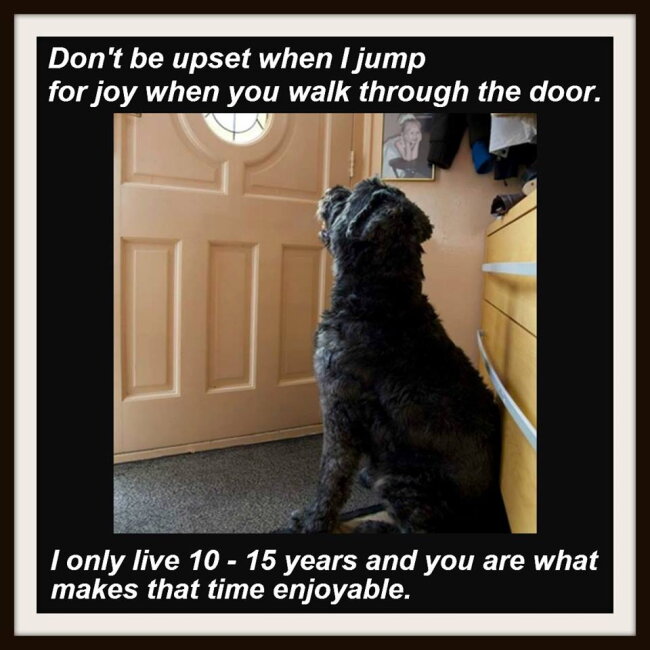 
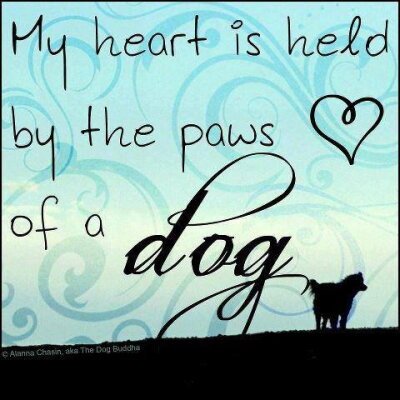
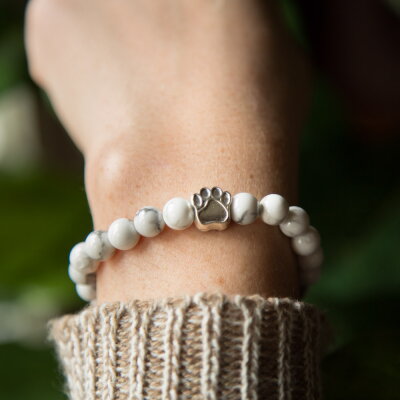 Memorial Bracelet with a heart and a paw as a special testament to your love for your beloved companion. This purchase Feeds 22 shelter dogs in Honor of Your Beloved Pup.
I found this on www.iheartdogs.com and here's the link:
http://iheartdogs.com/product/limited-edition-memorial-bracelet-feeds-22-shelter-dogs-in-honor-of-your-beloved-pup/?utm_source=IHCS-Email&utm_medium=Newsletter&utm_campaign=Newsletter_04-07-16 A Dog's Last Battle When I grow old or sick and weak And pain would keep me from my sleep, Then will you do what must be done, When life's last battle can't be won?
Please don't be sad, I understand, But don't let grief stay your hand. For on this day, above all the rest Your love and friendship must stand the test. We've had so many happy years, Don't spoil it now with pain and tears. You wouldn't want me to suffer so, When that time comes, please, let me go.
Take me where to my needs they'll tend, But please, stay with me to the end, Hold me close and talk to me Until my eyes no longer see,
It's one last kindness you can do for me.
So please don't cry. It must be you Who decides this thing we both must do; We've been so close for all these years, Let not your heart hold any tears, When from silent suffering I've been saved. You'll know somewhere my tail has waved, And I was strengthened by the scent of you In this last battle I will do. Author unknown  Rainbow Bridge is where our four-legged friends wait for us, until it's our turn to go meet them. They got their angel wings first and flew home. They are waiting for us all. If clicking on the picture doesn't work for you, then click on the link address. http://www.indigo.org/rainbowbridge_ver2.html This is one of the most beautifully done pieces I've ever seen. These are two very nicely done professional websites that may be helpful to you. One is the Association of Pet Loss and Bereavement at www.aplb.org and the other is www.petloss.com I hope it will help those of you who are grieving for a friend who has received their angel wings and gone to doggie heaven.
THE PERFECT DAY His dog was dying. But they could spend one more day together, he was going to make it a perfect day. This is excerpted from Jon Katz's new book, Going Home: Finding Peace When Pets Die. It is possible to take something beautiful and lasting out of the heart-wrenching experience of seeing the animal you love move inexorably toward death. Nobody can take the grief away, nor should anyone try, but our love for animals is nothing but a gift, and it keeps on giving, even when they go home.
A man named Harry, an Iraq war veteran and tennis coach from Minnesota, hit upon a simple and profound idea to transform this otherwise sad experience into a blessed one.
It was a gray morning when the vet told Harry that his dog Duke's heart was failing and that it wouldn't be long before he died. Harry was not surprised, but still, the news depressed him. Listening to the vet, Harry later told me, he'd gotten an idea, one he thought would pay tribute to his life with Duke and give him something to feel besides sadness and loss.
"Tomorrow, I'm going to give you a Perfect Day," he said quietly to Duke as they left the vet's office. He would take the day off from work and create a sweet memory with his dog. It would be a special day, filled with all the things Duke loved most, as close to perfect as Harry could make it. He would take his camera along to capture some images of the day, to preserve the memories.
Duke was a border collie/shepherd mix. He had always been a lively, energetic dog and would herd anything that moved. Walks, work, food, Frisbees, red balls—these were the things Duke loved, along with chasing balloons and popping them.
Harry went shopping for supplies, and when he came back Duke was napping on his dog bed. He went over, lay down next to the dog, and hugged him. "Pal," he whispered, "tomorrow is for you, your Perfect Day." He was embarrassed to tell his wife, Debbie, about the plan, but she sensed what was going on and gave the two of them the space they needed. It was her belief that the dog, more than anything else, helped Harry heal from the trauma of Iraq. He couldn't look at Duke without smiling, and when he had first come home, he hadn't smiled too often.
At eight the next morning, Harry got up. Duke was lying on his bed, which was next to Harry and Debbie's. The dog rose a bit slowly, then followed Harry down the stairs and into the kitchen. Harry opened the refrigerator and took out a hamburger patty and two strips of bacon, cooked the night before. He put them on a plate and into the microwave.
Duke was riveted. When the plate came out—Harry touched it to make sure it was warm but not hot—he dumped the meat into Duke's bowl, along with his heart pills. It was as if Duke couldn't believe his eyes. He was almost never given people food. Looking up at Harry, as if asking permission, he waited until Harry nodded and said, "OK, boy," before inhaling the food.
A feeling of sadness came over Harry as he thought about how Duke would soon be gone. He wandered into the living room and lay down on the couch. Duke came over and curled up next to him. Harry began to sob, softly, then more deeply and loudly; Duke gently licked his face.
After a few minutes, Harry rose to get dressed. Although he worried about straining the dog's heart, he let Duke follow him up the stairs. On this day, Duke could do anything he wanted. No corrections. He sat on the bedroom floor and watched Harry put his clothes on. When Harry said "Sneakers," Duke labored to get up onto his feet, walked over to the closet, and brought Harry his white running shoes. Harry had enjoyed training his dog to bring him his sneakers, and Duke seemed to love it too. Harry went back downstairs, followed by Duke. He picked up a bag from the pantry and walked out into the yard. Inside the bag were two dozen high-bounce red balls. One at a time, he threw them and bounced them off the back fence. Duke tore after one gleefully, then another, catching some, narrowly missing others as they whizzed past his head.
When Duke started to pant, Harry stopped.
Next they went to the town pond. Harry sat by the water's edge while Duke waded in, paddled around, swam back, shook himself off, then repeated the routine about a dozen times. Every few minutes Harry tossed the dog a liver treat. It practically rained the small and pungent treats. Once again, Duke looked as if he could hardly believe his good fortune.
They came back to the house and napped. After lunch, Harry took Duke to the vast state park outside of town. He picked a flat, gentle trail, and the two of them walked a couple of miles. Eventually, they came to a stone abutment with a beautiful view. Harry walked over to the edge and sat down. Duke clambered out and curled up beside him. It was a gorgeous afternoon, and the wind ruffled the dog's hair. Duke held his nose up to the wind, picking up the scents of the earth.
God, I love this creature, Harry thought. I never feel this peaceful, this much at ease. It is something to remember, to honor.
They sat together for nearly an hour, enjoying a bond of complete understanding and affection. If only the world could stay like this, Harry thought, this simple, this good.
Harry knew that Duke was tired, so they took their time walking back, stopping frequently to rest. A few years earlier, Duke could have hiked all day, and sometimes they did that together. But not anymore.
When they got home, Harry cooked Duke some prime sirloin, then chopped it up. The dog was beside himself, looking up at Harry as he ate, expecting the food to be taken away. That evening, Harry put one of his favorite Clint Eastwood movies into the DVD player and Duke hopped up onto the couch, put his head in Harry's lap, and went to sleep. When the movie was over, Harry carried the dog up the stairs and laid him down on his bed.
Several weeks after the Perfect Day, when Harry came home from work, Duke was not there by the door to greet him, and he knew he was gone. He went into the living room to find Duke dead. He knelt by his dog, closed his eyes, and said a prayer. Then he dug a deep hole in the backyard and buried Duke there, along with some bones, his collar, and some of his beloved red balls.
Of all the photos Harry took on the Perfect Day, the one he loved the best was of Duke sitting out on the stone ledge in the state park, taking in the sights and smells.
Now every morning before he goes to work, he flips open his cellphone and smiles at the picture of Duke, looking for all the world like a king surveying his territory.
Harry passed on the idea of the Perfect Day to friends and other dog owners struggling to come to terms with their own pets' failing health. Many have since shared with him the stories of their dog's Perfect Day. It makes him happy to think about Duke's legacy—all those Perfect Days for all those other great dogs leaving our world behind.
Here are some wonderful images put to James Taylor's song, "You've Got a Friend." Done by the same folks as Rainbow Bridge. Great piece in helping us appreciate all our friends who touch our souls. Again, clicking the picture should work but if it doesn't then click the link.
GRIEF AND PET LOSS By Margaret Muns DVM
GRIEVING THE LOSS OF A PET Grief is the normal response to any important loss in life. It occurs regardless of whether death followed a prolonged illness, or a sudden accident. Grieving people experience both physical and emotional traumas as they try to adapt to the upheaval in their lives brought about by the loss. Psychologists have long recognized that the grief suffered by pet owners after their pet dies is the same as that experienced after the death of a person. The death of a pet means the loss of a non-judgmental love source. There is no longer anything for the pet owner to nurture and care for. Furthermore, the owner looses his or her contact with "the natural world." These feelings can be particularly intense for the elderly, single people and childless couples,( for whom the pet also is a child substitute). THE STAGES OF GRIEF In truth, the process of grief is not a cut and dried process that can be subdivided into strict categories. Rather, the grief process is a continuum, with each person experiencing it in a different way. Dividing the grief process in to "stages" helps the grief stricken person to understand that their experiences and emotions are normal. Some people will quickly progress through all the phases, while others appear to get "stuck" in a particular phase. Briefly, the stages of grief are as follows: 1. SHOCK AND DENIAL- 2.ANGER- 3. BARGAINING- 4. DEPRESSION- 5. ACCEPTANCE- PET LOSS AND CHILDREN Many people do not realize how traumatic and confusing death can be on a child. Although children tend to grieve for shorter periods of time, their grief is no less intense than that experienced by adults. Children also tend to come back to the subject repeatedly; so extreme patience is required when dealing with the grieving child. Some helpful tips for helping the grieving child include: 1. Giving the child permission to work through their grief. 2. NEVER say things like "God took your pet," or the pet was "put to sleep." 3. Include the child in everything that is going on. 4. Explain the permanency of death. DO PETS GRIEVE? What many people find hard to believe is that animals can form very firm attachments with each other. Even pets that outwardly seem to barely get along will exhibit intense stress reactions when separated. In fact, grieving pets can show many symptoms identical to those experienced by the bereaved pet owner. The surviving pet(s) may become restless, anxious and depressed. There may also be much sighing, along with sleep and eating disturbances. Often, grieving pets will search for their dead companions and crave more attention from their owners. How can an owner help the grieving pet? By following the following recommendations: 3. Allow the surviving animals to work out the new dominance hierarchy themselves. 4. Don't get a new pet to help the grieving pet(s) unless the owner is ready. Should the owner let the surviving animals see and smell their dead companion? HEALING Given time, healing will occur for the bereaved owner. 1. Give yourself permission to grieve. 2. Memorialize your pet. 3. Get lots of rest, good nutrition and exercise. 4. Surround yourself with people who understand your loss. 5. Learn all you can about the grief process. - helps owners realize that what they are experiencing is normal. 6. Accept the feelings that come with grief. 7. Indulge yourself in small pleasures. 8. Be patient with yourself. 9. Give yourself permission to backslide. 10. Don't be afraid to get help. 11. Be sure to consult your own "Higher Power." CONCLUSION Grief is probably the most confusing, frustrating and emotional thing that a person can experience. It is even more so for pet owners. Society in general does not give bereaved pet owners "permission" to grieve openly. Consequently, pet owners often feel isolated and alone. Luckily, more and more resources are becoming available to help the bereaved pet owner realize that they are NOT alone and that what they are feeling is entirely normal.
Margaret Muns DVM is the staff veterinarian on the Best Friends Animal Sanctuary forum. (http://bestfriends.org)
References: 1.Lagoni, L., Butler, C. and Hetts, S: The Human-Animal Bond and Grief WB Saunders, Philadelphia 1994. Chapters 2 and 10. 2. Oblas-Walshaw, S: Consoling Bereaved Clients. Proceedings, 12th Annual Seminar for Veterinary Technicians, Western States Veterinary Conference, 1983 3. Malay, M: Grieving the Loss of Your Beloved Pet . Pamphlet distributed by Community Service Systems, Fairview, Pennsylvania 4. Guntzelman, J. and Riegger, M. : Supporting Clients Who are Grieving the Death of a Pet. Veterinary Medicine Jan 1993 5. Hetts,S et all: Do Animals Grieve? Loss and the Companion Animal. Perspectives Nov/Dec. 1994
Loss is the absence of something we were once attached to. Grief is the rope burns left behind, when that which we held is pulled beyond our grasp. Acute grief is the immediacy of loss -- the inconceivable tragedy. It can feel like a stabbing sensation in the body and mind. It slams shut the heart and leaves exposed only the rawest emotions. When Darla's husband died in an automobile accident, she says, "I didn't know what to do. I came into the kitchen and didn't know which way to turn. Everything felt so unreal. It was like I was waiting to wake up." There is a reason we feel so lost. When we love someone, he becomes a mirror for our heart. That person reflects back to us the place within us that is love, the divine principle. When that mirror is shattered through death, we may feel as though love itself has died. At first there is a great tearing away, a breaking away of every certainty. Through fluorescent hospital corridors, sunlit cemeteries, and endless condolences, none of the explanations suffice. There remains the feeling that our loved one might walk through the door at any moment. One morning, as I washed my cereal bowl, I noticed a crack across one side. It reminded me of one Buddhist master's teaching that "the glass is already broken." And the mirror, too, I thought. He said that though a crystal goblet given to him earlier in the day seemed so everlastingly beautiful, so able to catch the sunlight, impermanence was always encroaching; it was just a matter of time before gravity pulled it from the table or the winds of change blew it off the shelf and it lay at his feet as a scattering of shards. In the same way that "the glass is already broken," all that we love will someday turn into dust. But the love will remain. A means of finding closure, of finishing business, is when we call to our departed loved ones using the intuitive process called "heart speech" and send blessings directly from our heart to theirs. Meeting deeply in the heart so that we may say goodbye without ever losing our connection, wishing them well on their journey, and integrating our grief into a love and concern for their well-being aid in clearing the path ahead for ourselves. Our relationship with the departed is not over; it has just changed dimensions. Keep talking to them, and don't be too surprised if you seem to "hear" them answer. Grief is not a time to be too rational. This silent heart speech may last a lifetime. It soothes us.
Favorite Links | Secrets of Life | Poisonous Plants | The Best Goodbye |
 |
||||||||||||||||||||||||||
 |
 |
|||||||||||||||||||||||||||
 |
||||||||||||||||||||||||||||

